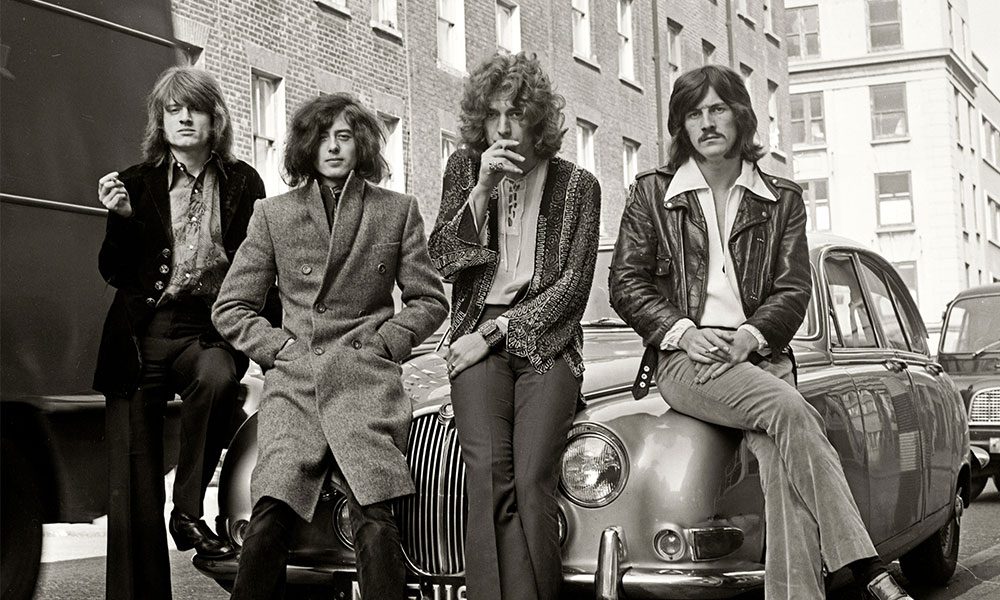Many music fans agree that Robert Plant’s powerful vocals and charismatic stage presence helped shape the sound of rock music.
As the voice of Led Zeppelin, Plant’s influence extends far beyond the band’s impressive catalog.
This article promises to explore how Plant’s unique style and contributions changed the landscape of rock and roll, inspiring countless artists across generations.
We’ll examine Plant’s role in Led Zeppelin’s rise to fame, innovative vocal techniques, and impact on the rock frontman’s image.
Additionally, we’ll examine how his post-Zeppelin career continues to push musical boundaries.
By the end of this piece, you’ll understand why Robert Plant is considered one of the most important figures in rock history.
Early Life and Musical Beginnings

Robert Plant’s journey to rock stardom began in the West Midlands of England.
Born in 1948 in West Bromwich, Plant’s early environment shaped his musical path.
As a young boy, he was captivated by Elvis Presley and often imitated his idol behind the curtains at home.
The raw emotion of blues artists like Willie Dixon and Robert Johnson also left a lasting impression, influencing Plant’s vocal style and musical direction.
Plant’s passion for music led him to abandon a potential career in accounting.
Instead, he immersed himself in the local music scene, playing with various bands and honing his craft.
His Time with The Band
His time with the Band of Joy he proved particularly significant, allowing him to experiment with blending blues and emerging psychedelic trends.
During this period, Plant met John Bonham, forming a musical bond that would become the backbone of Led Zeppelin’s sound.
Their early collaborations set the stage for the powerful synergy they would later bring to one of rock’s most iconic bands.
These formative years in the West Midlands, filled with diverse musical influences and key relationships, we laid the foundation for Plant’s future as a legendary rock frontman.
His early experiences shaped his vocal style and approach to performance and songwriting, elements defining his iconic career with Led Zeppelin and beyond.
Formation of Led Zeppelin

The birth of Led Zeppelin marked a pivotal moment in rock history.
In 1968, guitarist Jimmy Page, seeking to form a new band after The Yardbirds dissolved, set out to find the perfect lead singer.
On Terry Reid’s recommendation, Page discovered Robert Plant, a young vocalist from the West Midlands with a powerful and unique voice.
Their first meeting was electric.
Plant’s raw talent and Page’s musical vision aligned perfectly, creating instant chemistry that defined the band’s sound.
During Plant’s audition, they performed “Babe I’m Gonna Leave You,” a folk song that showcased Plant’s vocal range and Page’s intricate guitar work. The synergy was undeniable.
The lineup was completed by adding John Paul Jones on bass and keyboards and John Bonham on drums.
1. Bonham
Bonham, an old friend of Plant’s from the Band of Joy, brought a thunderous rhythm section that complemented Page’s innovative guitar playing and dynamic vocals.
Led Zeppelin’s 1969 debut album was a game-changer, showcasing Plant’s extraordinary vocal abilities.
Tracks like “Good Times Bad Times” and “Dazed and Confused” highlighted his range, from bluesy growls to piercing high notes.
The album’s recording, completed in just 36 hours, captured the raw energy of their live performances.
Critical reception was mixed initially, but audiences were captivated.
The album’s success launched a whirlwind of tours and performances, with the band’s live shows quickly becoming legendary.
Plant’s charismatic stage presence and Page’s guitar virtuosity created an electrifying atmosphere at every concert.
2. Second Album
Their second album, “Led Zeppelin II,” featuring the iconic “Whole Lotta Love,” catapulted them to superstardom.
Plant’s wailing “Way down inside, woman, you need love” became one of rock’s most recognizable vocal lines.
The album topped the charts worldwide, establishing Led Zeppelin as a dominant force in rock music.
As the band’s popularity soared, Plant’s influence on the rock music landscape grew exponentially.
His unique vocal style, blending blues, folk, and hard rock elements, set a new standard for rock singers.
Plant’s ability to convey raw emotion and power through his voice inspired a generation of vocalists and helped shape the sound of hard rock and heavy metal for decades to come.
Unique Vocal Style and Contributions
Robert Plant’s unique vocal style and creative contributions were instrumental in shaping Led Zeppelin’s sound and success.
His extraordinary range, from powerful high-pitched wails in “Whole Lotta Love” to soulful blues-inflected crooning in “Since I’ve Been Loving You,” set a new standard for rock vocalists.
Plant’s dynamic stage presence electrified audiences, making Led Zeppelin concerts unforgettable experiences.
His ability to blend blues, folk, and hard rock elements created a diverse sonic palette that appealed to a wide audience.
As a songwriter, Plant co-wrote many of the band’s most famous tracks, including “Stairway to Heaven.”
His lyrics often explored mystical and philosophical themes, drawing from mythology and literature.
This lyrical depth and vivid imagery added meaning to Led Zeppelin’s music.
Plant’s vocal improvisations during live performances brought an exciting, unpredictable element to shows.
His collaboration with Jimmy Page produced some of rock’s most enduring songs, solidifying Led Zeppelin’s place in music history.
Plant’s innovative approach to singing and songwriting continues influencing musicians across genres, cementing his legacy as one of rock’s most influential figures.
Key Moments in Led Zeppelin’s History Influenced by Plant
Iconic songs and unforgettable performances mark Robert Plant’s influence on Led Zeppelin’s history.
“Stairway to Heaven,” widely regarded as one of rock’s greatest achievements, showcased Plant’s lyrical depth and vocal versatility, becoming an anthem of the 1970s.
Plant’s collaborations with Jimmy Page produced groundbreaking tracks like “Whole Lotta Love,” which defined the band’s heavy rock sound with Plant’s powerful vocals.
The blues-influenced “Since I’ve Been Loving You” highlighted his soulful delivery and impressive range.
On stage, Plant’s charismatic presence was magnetic.
His dynamic performances at venues like Madison Square Garden and Earls Court Arena have become legendary, cementing his status as one of rock’s greatest frontmen.
These concerts, immortalized in recordings and film, demonstrate Plant’s ability to captivate and energize massive audiences.
Plant’s contributions to these songs and performances were crucial in shaping Led Zeppelin’s legacy, pushing the boundaries of rock music and inspiring generations of musicians.
Challenges and Tragedies
Robert Plant’s journey with Led Zeppelin was marked by significant challenges and personal tragedies that shaped his career and the band’s legacy.
In 1975, a serious car accident in Greece left Plant and his wife severely injured, delaying the production of “Presence” and forcing tour cancellations.
Plant’s resilience was evident as he recorded vocals from a wheelchair during this period.
A more profound tragedy struck in 1977 when Plant’s five-year-old son, Karac, died unexpectedly.
This devastating loss led to a hiatus from touring and deeply affected Plant’s perspective on life and music.
The final blow came with John Bonham’s untimely death in 1980, leading to Led Zeppelin’s disbandment.
The band felt they couldn’t continue without their iconic drummer.
In the aftermath, Plant embarked on a solo career, exploring new musical territories and collaborating with diverse artists.
Despite these hardships, Plant’s resilience and creativity shone through.
He continued to make impactful music, reinventing himself and inspiring new generations of musicians.
These experiences, while challenging, ultimately contributed to Plant’s enduring legacy in rock history.
Post-Led Zeppelin Career
After Led Zeppelin’s disbandment, Robert Plant embarked on a diverse and successful solo career.
His early albums, “Pictures at Eleven” and “The Principle of Moments,” showcased his ability to thrive outside the band.
The 1988 release “Now and Zen” marked a commercial peak, featuring hits like “Tall Cool One.”
Plant’s collaborations have been particularly noteworthy.
His work with Alison Krauss on “Raising Sand” (2007) blended bluegrass, country, and rock, earning critical acclaim and multiple Grammy Awards.
Earlier, he reunited with Jimmy Page for the “No Quarter” project, revisiting Led Zeppelin’s catalog with fresh arrangements.
Plant has explored diverse musical genres throughout his solo career, from folk and blues to world music.
Albums like “Dreamland” and “Lullaby and… The Ceaseless Roar” reflect this eclectic approach.
His willingness to experiment and evolve has inspired many contemporary musicians, cementing his status as a pioneering artist who continues to shape the landscape of rock and beyond.
Plant’s journey from Led Zeppelin frontman to respected solo artist demonstrates his enduring relevance and innovative spirit in the music industry.
Legacy and Influence
Robert Plant’s legacy in music is undeniably profound and far-reaching.
His work with Led Zeppelin and his solo career have shaped rock music and beyond.
This section explores Plant’s immense impact on rock and heavy metal, his influence on generations of musicians, and the recognition he’s received for his contributions.
Plant’s powerful vocals and charismatic stage presence set new standards for rock frontmen, inspiring artists like Axl Rose and Chris Cornell.
His innovative blending of musical styles helped evolve rock and heavy metal, evident in iconic tracks like “Whole Lotta Love” and “Immigrant Song.”
Plant’s influence has been widely recognized. Led Zeppelin’s induction into the Rock and Roll Hall of Fame in 1995 cemented their status as rock legends.
He’s received multiple Grammy Awards for his band and solo work and has been named one of the greatest singers of all time by Rolling Stone.
Plant’s enduring legacy and ongoing relevance in the music industry testify to his innovative spirit and continuous musical exploration.
His career, marked by adaptation and creativity, continues to inspire new generations of musicians and ensure his place in music history.
Conclusion
Robert Plant’s journey from Led Zeppelin’s electrifying frontman to a respected solo artist has left an indelible mark on music history.
His powerful vocals, charismatic stage presence, and innovative approach to blending musical styles have influenced countless musicians across generations.
From the iconic wails in “Whole Lotta Love” to his Grammy-winning collaboration with Alison Krauss, Plant has consistently pushed the boundaries of rock and beyond.
His legacy extends far beyond Led Zeppelin as he explores and evolves musically. Plant’s enduring influence is a testament to his artistic vision and adaptability.
As we reflect on his contributions, it’s clear that Robert Plant isn’t just a rock legend—he’s a musical pioneer whose impact will be felt by future generations.
What’s your favorite Robert Plant performance? Share in the comments below!





















